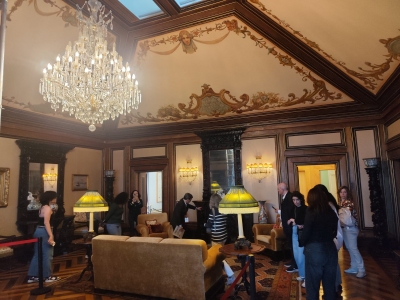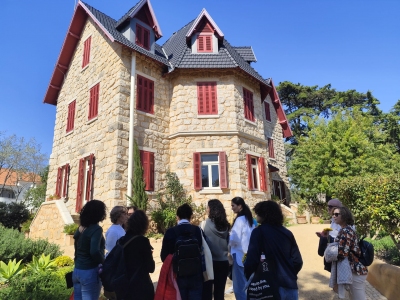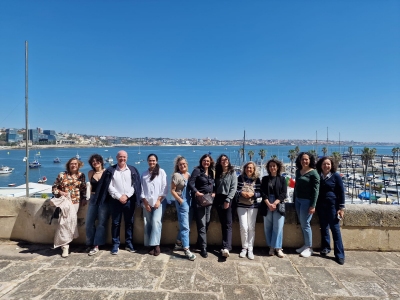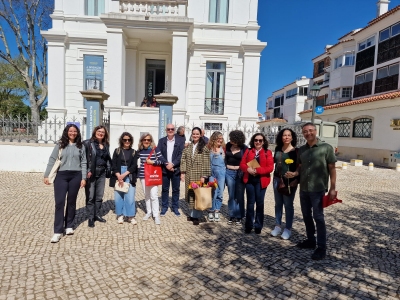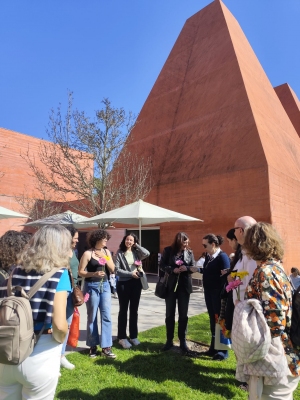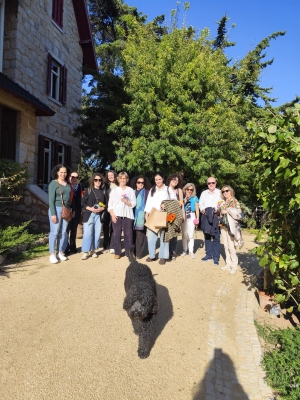Postgraduate students in Cultural Tourism immerse themselves in Cascais' heritage
On March 29, 2025, students from the Post-Graduate course in Cultural Tourism took part in a study visit to Cascais, as part of the Immersive Laboratory for Tourism course, taught by João Reis, Maria Mota Almeida and Fernando Completo. This experience allowed them to have direct contact with the town's heritage, exploring different forms of cultural appreciation and interpretation.
The day began at Casa Sommer, where the group was welcomed by Dr. João Miguel Henriques, Director of the Archives, Libraries and Historical Heritage Department of Cascais Municipal Council. In an engaging and detailed presentation, he explained the importance of the documentary collection in preserving the town's memory, enriching the experience with an in-depth look at local history by giving the group a guided tour of the exhibition “The Invention of Estoril - History in Photography 1914-1955”.
This was followed by a visit to the Citadel of Cascais, where the students explored the Museum of the Presidency of the Republic, a space that played a fundamental role in the transformation of Cascais into a court town at the end of the 19th century, especially due to the presence of the Portuguese royal family who used it as a summer residence. This period laid the foundations for the town to become an important luxury tourist destination, a status it retains to this day. It also provides an insight into Cascais' role in the country's political history.
Lunch took place in the cafeteria of the Casa das Histórias Paula Rego, allowing not only a moment's pause, but also a chance to enjoy the atmosphere of one of the town's most iconic cultural spaces.
In the afternoon, the group visited Chalet Ficalho, an elegant nineteenth-century mansion which, after a careful refurbishment process, now functions as charming local accommodation. This visit allowed them to reflect on the challenges of adapting architectural heritage to tourism while maintaining its authenticity and historical value.
The visit continued with a visit to the Town Museum, where it was possible to understand the evolution of Cascais over the centuries. The tour also included the Casa de Santa Maria and the Museu Condes de Castro Guimarães, two spaces that illustrate the town's architectural and artistic wealth.
This experience was a unique opportunity for the students, from various regions of the country, to deepen their knowledge of the management and interpretation of cultural heritage, consolidating their learning in an immersive and applied way, but also to socialize in a relaxed atmosphere, considering that the remaining curricular units of this advanced training are taught online.
